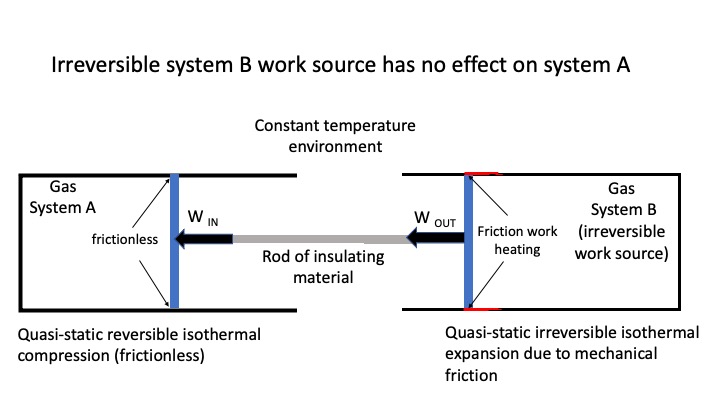In a textbook for thermodynamics, it considers a situation where work is done to a system by an irreversible work source through a thermally insulating piston, and it states "any irreversible work source can be simulated by a reversible work source". It briefly explains the reason; what the work source does is simply to apply force to the piston, and therefore it does not matter how the force is applied, whether or not it is applied by an irreversible work source. I have a difficulty to fully convince myself with the statement, and can anyone kindly help me with this?
- The textbook is a non-English one, and it is not available online as an electric file.
- The way how it defines the work source is simply that it is any system, which is connected with the system of our interest only through a thermally insulating piston. That is, there is no heat exchange between the two system.
Let me rephrase my question: Suppose that system A is interacted with system B (irreversible work source) only with a thermally insulating piston. They exchange energy only through work, but not heat. My question is if it is possible to replace system B with a reversible work source in an indistinguishable manner, i.e., any mechanical reaction that system A receives from system B remains exactly the same.
Thank you so much for your time.

